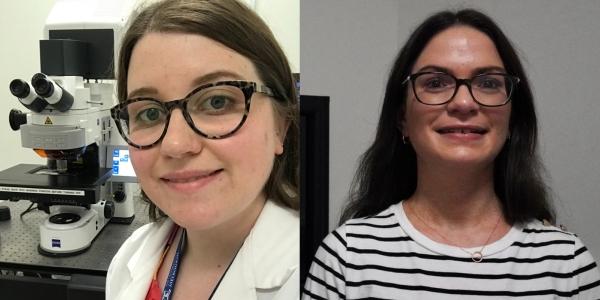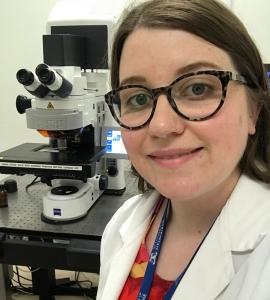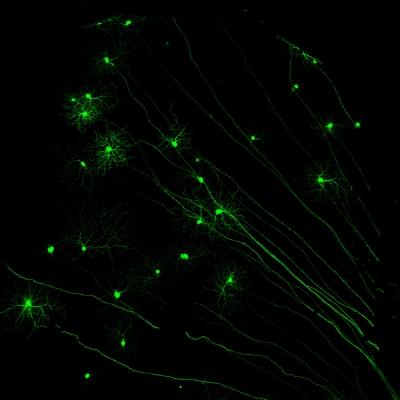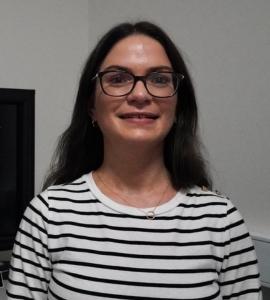2:0min

Leading up to O=MEGA23/WCO4 on 8–10 September, OV/SA has awarded postgraduate travel grants to two PhD researchers to support them in attending the conference, sharing the aims of their research, and making new contacts in the industry.
This story was created and shared by Optometry Victoria South Australia (OV/SA).
PhD candidates Anna van Koeverden and Cassandra Brooks from the University of Melbourne were selected as the recipients of the 2023 Optometry Victoria South Australia Postgraduate Travel Grants, designed to support optometry research and help integrate a new generation of researchers into the optometry community.
We sat down with each of the recipients to learn more about their research and what they hope to get out of O=MEGA23/WCO4 this September.
 Anna van Koeverden
Anna van Koeverden
Anna began wearing glasses when she was 15, which kickstarted an interest in optometry. After a research project during her Masters sparked an interest in contributing to optometry on a wider scale, since 2018 she has been embarking on a PhD with a focus on the effects of microglia in the retina and the brain.
‘We know that during early development, microglia are critical to defining connections between neurons, so in a way they “prune the garden”. In some diseases like Alzheimer’s, they return to this role, but this time to the person’s detriment. Because the eye is part of the central nervous system, we’re looking at how this could also happen in the eye, the role of microglia in shaping development of the eye, or how they relate to conditions such as glaucoma,’ she said.
The research is also aimed at providing alternative treatment options for glaucoma, given that the current standard treatment is to lower pressure in the eye, which, as Anna explains, ‘sometimes just doesn’t work’. This path of inquiry is looking for a better understanding of the molecular processes and interactions with other retinal cells during ganglion cell injury and death with the goal of developing a therapeutic agent to combat it and aid treatment for glaucoma patients.
But Anna explains that ‘research is more like a 5-million-piece puzzle, rather than the eureka moments the media thinks of it as’, and breakthroughs take time. She credits her supervisor Associate Professor Bang Bui as a constant source of passion and motivation, but admits that during the COVID-19 lockdowns, her team lost access to their lab facilities, which made even simple processes much more difficult.
‘The mouse colony I used stopped breeding animals for nine months, so it was a bit of a set-back. Working from home is also hard in a collaborative work environment like a lab; it was certainly a challenge to go from working with people all around you, who you can chat and share your thoughts with, to isolation,’ Anna said.
‘But you wouldn’t make it in research if you weren’t passionate about it. There aren’t constant breakthroughs, so you have to be passionate. Being surrounded by people who are also equally passionate helps to buoy you whenever you feel down.’

While Anna has attended ophthalmology conferences such as ARVO in the past, the majority of her experience with the industry has been research-oriented, while O=MEGA23/WCO4 in September offers both a research and clinical focus.
‘It’s an opportunity not just to network from a research perspective, but it’s also a chance for clinical optometrists to see what’s on the horizon, such that they may be able to tell patients about current research in a field that affects them. As an early-stage researcher, it’s important to attend conferences and important to meet and foster relationships around your work,’ she said.
Anna hopes that optometrists attending O=MEGA23/WCO4 can gain knowledge that they may be able to apply in a clinical setting.
‘Our understandings of disease have increased exponentially over the past 50 years, and hopefully that won’t slow down any time soon, so there are more opportunities for new treatments now than ever before. For example, when I was an undergraduate student, myopia control was a specialty thing, but now it’s widely available. When it comes to treatment prospects still on the horizon, patients understand that even if the research doesn’t benefit them directly, it may help their children, especially if there is a familial component or a family history. Sometimes you see patients who have aunties and uncles who have glaucoma and they’re concerned for their children,’ she said.
Anna also teaches at the University of Melbourne, where she sees first-hand how the course material has changed over time. She notes that it’s not the retina that changes, but the students, ideas, and eventually treatments that change. Through exposure to the latest research and ideas, she hopes that she may light a spark in a student and give them something new to pursue.
‘Thank you to the team at OV/SA for giving me the chance to attend O=MEGA23/WCO4, it’s a great feeling to get the opportunity to share my research. I understand, as researchers, we represent a very small part of the profession, but it’s great that our contribution is being recognised. I’m looking forward to presenting at the conference and having some good interactions and questions about my research,’ she said.
 Cassandra Brooks
Cassandra Brooks
A fellow PhD candidate, Cassandra’s research is concentrated on the neurological condition visual snow syndrome and the associated symptoms, including afterimages of everyday objects, light sensitivity, problems with night vision, and the eponymous visual snow, in which patients see tiny dots across their vision ‘like TV static’.
‘The focus of my PhD is improving understanding of visual snow syndrome – the nature of its symptoms and their effects on vision, which we are doing using computer-based tests of vision. One of the challenges we face is that visual snow syndrome is a diagnosis based entirely on self-reported symptoms, so it’s challenging for researchers to evaluate potential treatments in an objective way. Our research aims to measure visual snow appearance in a more systematic way, where everyone has to perform the same task,’ she said.
Visual snow syndrome is a relatively recently defined neurological condition. While more and more research has been done since then, Cassandra reports that ‘we still don’t have good answers’ for patients with the condition.
At O=MEGA23/WCO4, Cassanda will be presenting findings on a completed experiment that measured what visual snow actually looks like and explored patient perceptions of its effects on daily visual experience.
‘I’m definitely looking forward to talking to international researchers about my work, it will be a great experience. A valuable part of undertaking a PhD is connecting with people and talking about your work,’ she said.
Cassandra explains she’s committed to investigating through research how vision works, how it is affected by age, and how diseases can affect visual perception.
‘Ever since my optometry training, I’ve been fascinated by how vision works, and eye disease, and everything to do with vision. I also really enjoy learning, so now, looking at how visual snow syndrome affects visual perception, I get to both learn and work in a field I’m passionate about,’ she said.
In addition to research, Cassandra teaches at the university, and also teaches herself the skills she needs to complete her work. In order to create objective measures in a way that hasn’t been done, she had to learn how to program in order to code her own custom-designed software that she can adapt to her own needs.
‘It’s great to be recognised by OV/SA, and I’m really excited to present my work and talk to both optometrists and researchers at O=MEGA23/WCO4.’
O=MEGA23/WCO4 will run in Melbourne from 8-10 September 2023. Explore the program or book your place here.
Tagged as: grants, OMEGA, post-graduate, research